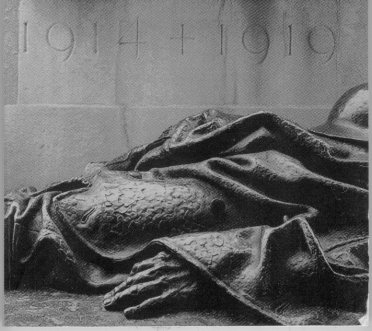
Today is Armistice Day—Remembrance day.
On the eleventh hour of the eleventh day of the eleventh month in the year 1918, the guns of the Western Front finally fell silent and the human carnage of the First World War came to a close – in the West, anyway, if not in the Bolshevised East. Yet while the guns went silent, the results of the war would stay with us, like a bacillus, for decades to come.
They are with us still.
The world that emerged from World War I was vastly different to the benevolent, cultural milieu that entered it so optimistically four-and-a-half years before. The war into which European empires stumbled and New Zealand and Commonwealth soldiers tumbled so eagerly (at first)—into which American President Woodrow Wilson thrust American troops on the basis “the world must be made safe for democracy”--succeeded instead in ending ending empires, impoverishing democracies and delivering misery to millions.
Far from being The War to End All Wars, it instead set the world up for decades of pain to come.
It was the war to end all peace.
Britain and Germany were bankrupted, and the war debts of all combatants would infect western economies for years to come, until their final annihilation in German hyperinflation, the collapse of the classical gold standard, and the maw of the worldwide Great Depression – and the calls for “a good war” to fix things.
The Bolshevik takeover of Russia, still in place at the Armistice--a wartime piece of German treachery that eventually enslaved around 300 million people – too decades before those enslaved were eventually liberated.
The “state socialism” adopted by all the west’s Great Powers in the war took hold and grew, its virus corrupting every democracry and infecting every single big statist of the next generation, from Keynes to Herbert Hoover to FDR, all of them to a man learning their interventionism in the corridors of power they so loved so far behind the front lines—learning in those corridors lessons they would never unlearn about the “power” of the state and how they could heft it when their own time came. Those lessons are still being inflicted upon us by their students and admirers who, when they hear that “war is the health of the state,” begin beating the drums.
Meanwhile, in the German trenches were born the seeds of World War II.
The march of the Nietzschean call to arms in defence of the Fatherland and its “blood and soil” began there; what Clemenceau called the “twenty-year ceasefire” that was the Versaille Treaty was first bewailed by the men who fought there; and there too was born the myth of Der Dolchstoß so exploited by the Nazis – that the “good Germans” who were fighting at the front remained undefeated, but were “stabbed in the back” by a surrender forced upon them by a coterie of Jews and other traitors in their rear echelons.
This myth, so poisonous and and so wrong, fanned the flames of nationalistic racial hatred into the next even larger conflagration. It took the utter defeat of Germany twenty-seven years and 100 million lost souls later to finally lay these myths and tragedies to rest.
This “stab in back” myth, that the German surrender of November 1918 allowed to take hold, offers a lesson that needs to be learned and relearned: that to be lasting a defeat must not be a negotiated surrender allowing the losers to rewrite history, but it must bring home the true horror of war to those who promote it; it must be crushing, and must be seen to be crushing—as it finally was in World War II. (Of the Axis powers, at least.)
This is the lesson offered by historian John David Lewis in “Nothing Less than Victory: Decisive Wars and the Lessons of History,” which argues that for lasting peace, the goal of a war must be not just wearing out your enemy, but utterly defeating his will to fight.
Lest we forget indeed. If truth is the first casualty of war, then the the memory of its lessons and of its unintended consequences must surely be the second.
[Image, by the way, is of Charles Sargeant Jagger's Artillery Monument at Hyde Park Corner, London.]
No comments:
Post a Comment